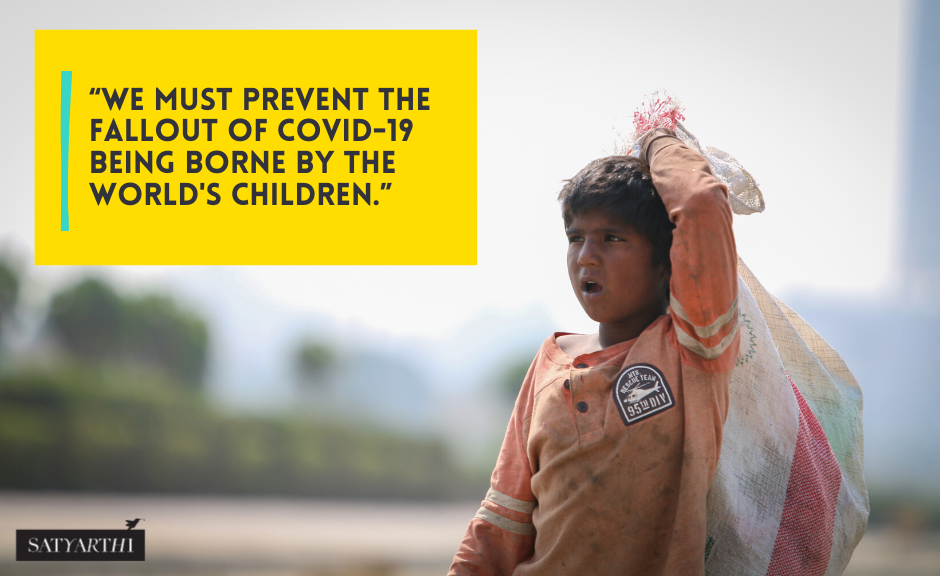Children are in crisis. As the coronavirus pandemic rages on, children will face immediate and long-term impacts far beyond contracting the virus. The pandemic has halted the global economy, and while the richest corporations fear the impacts to their bottom lines, it is children who will feel the most devastating effects.
For many, COVID-19 has created widespread loss of income and destabilized an already fragile economic security. Families in impoverished countries are out of work and even worse, may not have a home to quarantine in. When you are a child, your livelihood depends on the livelihood of your family. History shows that economic insecurity contributes to the rise of child exploitation, from child labor, bondage and trafficking to child marriage, sexual abuse and teenage pregnancy. When families lose income earners to the virus, they may become desperate enough to be fooled by traffickers. Many children will have no other choice then to join the unregulated work sector and newly orphaned children may fall into trafficking. Migrant and refugee children are disproportionately affected and especially susceptible to trafficking and labor.
The lack of access to schools is also having a devastating impact on children. We know that education is a powerful force in preventing child exploitation, but schools are closed in over 188 countries and online education is not a viable option for nearly half the world’s population who cannot access the internet. What’s more, schools provided stable meals for children, and now many children are hungry. School closures and stay-at-home orders reveal another darker danger to children: physical abuse and sexual exploitation. Domestic violence has spiked since the pandemic began and in most cases, victims are unable to seek help. The demand for online child sexual abuse materials has also increased and children are easy targets for online predators.
The realities marginalized children are facing will have grave effects on current global efforts being made to protect children. This is why we have a responsibility to those who are suffering the most, as Kailash Satyarthi explained in The Call to Unite.
Globally, 1 out of every 5 children lives in extreme poverty with that number projected to increase in the coming year. Believing that children must not bear the fallout of COVID-19, 88 Nobel Laureates and leaders have sent a joint statement to every government calling for $1 trillion to protect the world’s most vulnerable children during and in the aftermath of COVID-19. Call upon your leaders and ask them to put systems in place and allocated funding to protect children. More needs to be done, and we cannot wait to take action. Join the conversation on social media #FairShare4Children.
Stay tuned as we share with you voices of young people from around the world as they deal with this pandemic.

